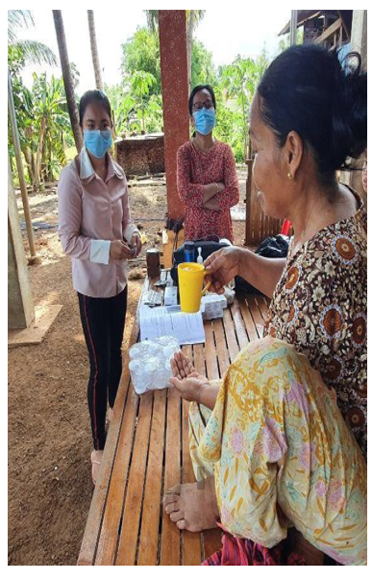- What We Do
- Agriculture and Food Security
- Democracy, Human Rights and Governance
- Economic Growth and Trade
- Education
- Environment and Global Climate Change
- Gender Equality and Women's Empowerment
- Global Health
- Humanitarian Assistance
- Transformation at USAID
- Water and Sanitation
- Working in Crises and Conflict
- U.S. Global Development Lab
Speeches Shim

Tuberculosis infection (TBI) affects about one-quarter of the world’s population, which means people have been infected by TB bacteria but are not (yet) ill with the disease. Tuberculosis Preventive Therapy (TPT) prevents the progression of TB infection to active TB disease.
In Cambodia, USAID’s Community Mobilization Initiatives to End Tuberculosis (COMMIT) Project, led by local partner KHANA, supports the Cambodian National Tuberculosis Program (CENAT), Ministry of Health, and Provincial Health Departments (PHD) implement TPT in ten underserved health districts. Together, they provided 15 TPT training sessions to 242 health care providers.
As a demonstration for key health care providers, the COMMIT team, with the support of the health centers, conducted intensive TPT case finding activities between January and June 2020, identifying 197 active TB cases. To prevent further spread, 62 eligible contacts were initiated on TPT.
As an example of the effectiveness of this activity, the team identified a 78-year-old man living with bacteriologically confirmed TB who was in his third month of TB treatment. Due to the efforts of the health center team and the COMMIT project, his three family members and five neighbors are now on TPT to prevent them from developing active TB disease.
The COMMIT project helped to ensure that the man understood the cause of TB transmission within his family and how to protect his family and neighbors. He takes his medicine as prescribed and supports his family members and his neighbors to adhere to TPT treatment weekly. “If everyone is prevented [from getting TB] and cured, our lives are saved,” he said. “As long as there is life, we can do anything.”

Comment
Make a general inquiry or suggest an improvement.